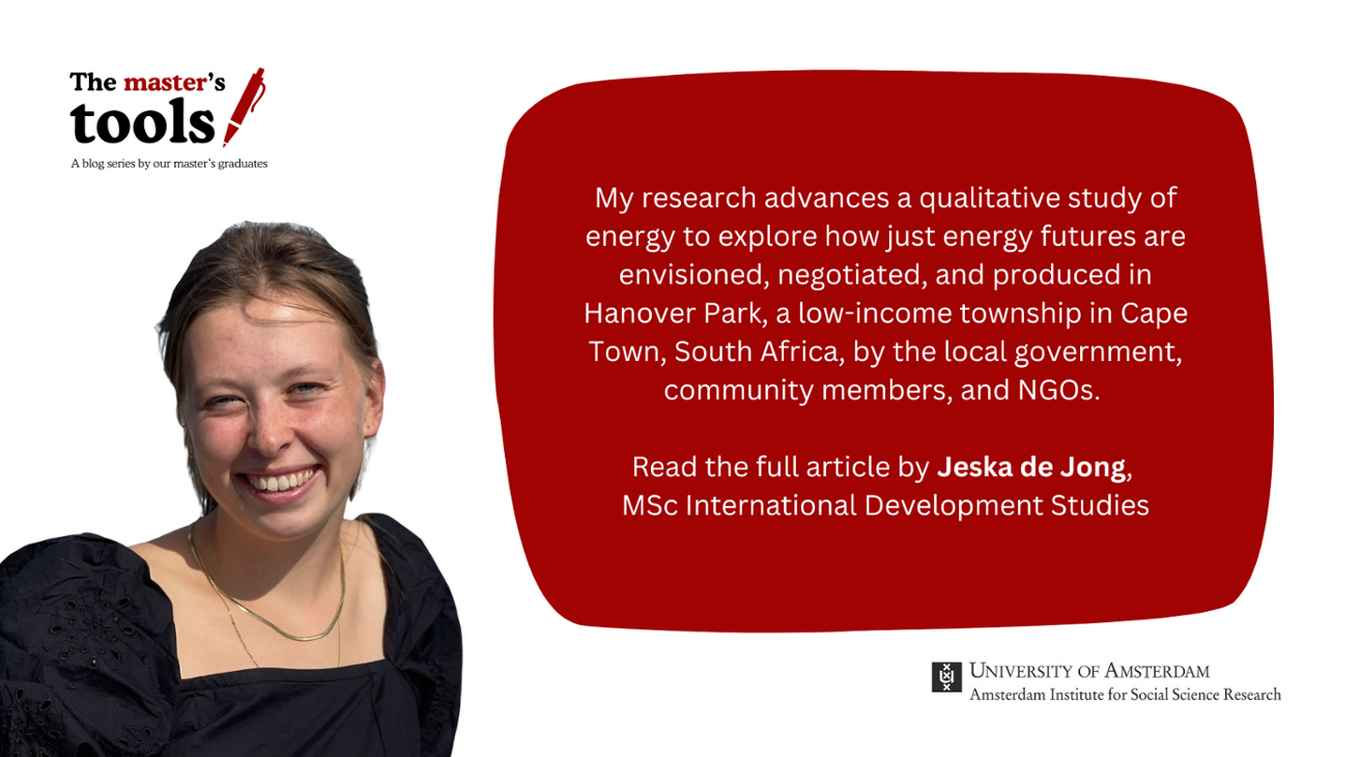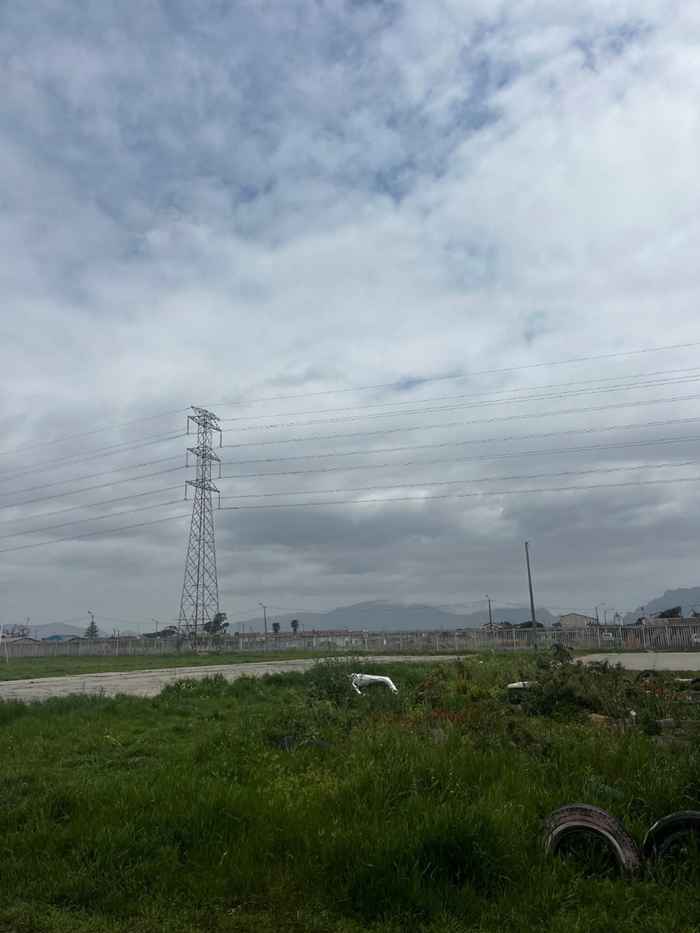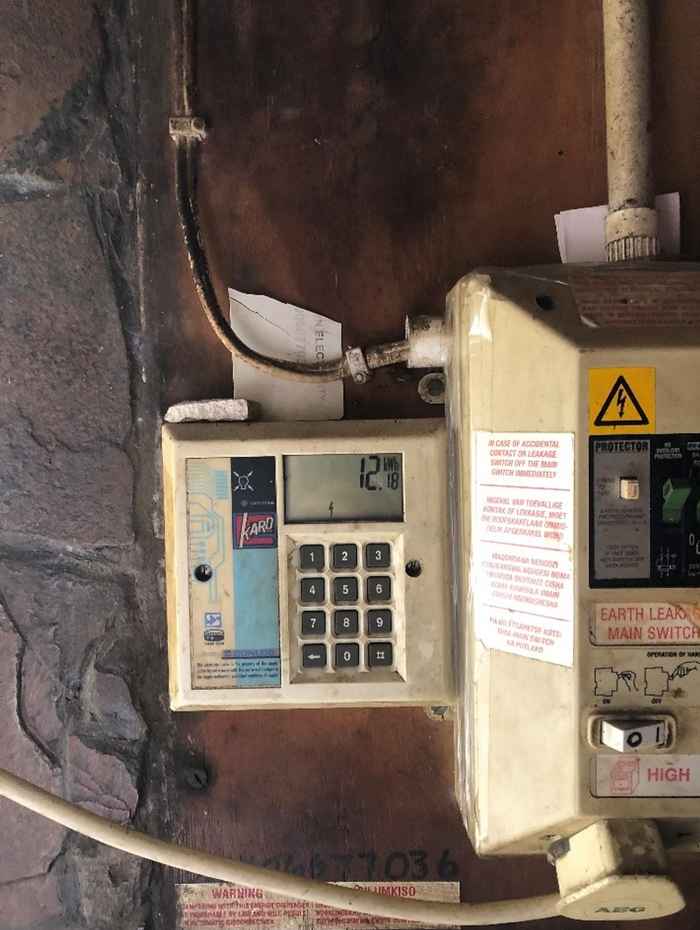Towards Just Energy Futures Beyond the Grid: Exploring Energy Imaginaries and Just Energy Futures in Hanover Park, South Africa
'What we speak about and create together becomes our reality.' - Chukuwah
6 October 2025
But increasingly, and especially in contexts like South Africa, characterised by a high degree of energy poverty and inequality, questions of justice and equality arise. While the energy transition provides opportunities to address energy poverty and inequality through strategic policymaking and investments, renewable energy production also risks reinforcing existing or producing new social inequalities. Renewable energy infrastructures might have distinctly negative effects on social equity and centralise economic and political power as they are often characterised by inter alia highly financialised ownership structures and a lack of meaningful and impactful public participation. In my thesis, I approached the energy transition not as a set-in-stone process towards a pre-determined ‘energy future’. Rather, I conceptualise the energy transition as an ongoing story and dialogue, where we can use our imagination to envision and create different just energy futures depending on the courses of action we take and the voices we bring together. My research advances a qualitative study of energy to explore how just energy futures are envisioned, negotiated, and produced in Hanover Park, a low-income township in Cape Town, South Africa, by the local government, community members and NGOs.

Adopting a social science perspective to energy infrastructures
Growing up in Norg, a small town in the north of the Netherlands home to Europe’s largest underground natural gas storage facility, I witnessed firsthand the political power of our energy system. While the natural gas extracted from the region has boosted the Dutch economy and transformed the Netherlands into a highly energy secure country, it has also had damaging consequences for the region’s residents. The pumping of gas in and out of the facility has induced seismic activity, causing earthquakes to happen ever more frequently which damage houses, other building structures and affect inhabitants emotional and psychological wellbeing.
Witnessing this from a very young age, I soon became interested in adopting a social science perspective to research energy systems. This perspective departs from the understanding that energy flows through socio-natural systems in different and often unequal ways, calling attention to the political and societal dynamics created by and exercised through energy infrastructures (Strauß et al., 2016). Research on energy and energy transitions has long been dominated by natural scientists and engineers taking a quantitative, economic, and technical approach to understand and enhance energy generation capacity. Increasingly, however, social scientists are trying to understand how people actually value energy in their daily lives and how energy flows through socio-natural systems in different and often unequal ways. Energy, then, is viewed not as a cause or result of social systems, but as a foundational element of the social practices that make up societies. In doing so, social scientists such as anthropologists call attention to the political and societal dynamics created by and exercised through energy infrastructures. For example, Strauß et al. (2016) posit: “Because of the necessity of institutions to manage energy flows, and because of the necessity of energy flows to individual agency, an anthropology of energy is necessarily political.” It is this perspective that I adopted in my research on just energy futures in Cape Town, South Africa.
Justice in the energy transition: a case study in Hanover Park
As we consider the importance of the energy transition in light of global climate change, we must also consider questions of justice in this process. Who gets a seat at the table, speaking to what the future of our energy system will look like? Who stands to benefit from this new system, and who will suffer? How can we design and act out the energy transition in such a way that we can harness the opportunities it brings to reduce or even eliminate the injustices that the current energy system perpetrates?

My research links up to this endeavour to understand energy and energy justice from a social science and qualitative perspective, focusing first and foremost on the way that energy is imagined and lived on the ground. I chose to conduct my fieldwork in a Global South context because with my research, I wanted to contribute to pluralising knowledge and theory of the energy transition and energy justice from the South, as I noticed that these theoretical domains continue to be dominated by knowledge and theories produced in and emanating from the Global North. Drawing from five months of qualitative fieldwork in Hanover Park, a low-income community in Cape Town, South Africa, my research engages with experiences of energy and energy poverty as recounted firsthand by community members, government officials and NGO workers. In South Africa, low-income households access electricity through a device colloquially called ‘the meter box’. This device works as a prepaid electricity meter to ensure that electricity costs can be immediately recouped by the provider: upon purchasing a voucher online or at a store, the meter box can be charged so that the purchased number of kWh of electricity can be used in the home. Figure 2 shows a picture of one of these ‘meter boxes’ installed in a participant’s home.

By taking an embodied approach, the analysis demonstrated that community members’ relationships with electricity are deeply intimate and emotional, which manifests in the meter box obtaining human-like properties and community members relating to it as if it is a semi-member of the household. The meter box is often mounted in a central position within the home, dictating which activities can and which activities cannot be done, causing feelings of stress and worry that can barely be escaped or mediated. For example, Toslyn shares what she feels when she looks at her meter box:
Stress. If you see the numbers on there: ‘ooh not again!’ That's the first thing that comes to mind. Whatever you do in your house, whatever you want to cook or make, you first have to look on that box.Toslyn
In that experience, the units of electricity become experienced by participants as units of time according to which they must plan their daily activities, with an explicit effect on women as the meter box dictates especially the highly gendered activities in the household.
By theoretically framing energy and energy infrastructures as tools of power, this research has demonstrated how energy is first and foremost foregrounded and experienced as a commodity and a tool of control in Hanover Park by the government and community members, respectively, mediated through the entity of the meter box. NGO workers working for Project 90 by 2030, a social and environmental justice organisation based in Cape Town, are positioned as intermediaries between the government and the community actors, viewing energy both as a state mandate as well as a topic for activism for community members to claim that right. They work to empower community members to take charge of their electricity situation by informing them of their rights to electricity support and the ways in which they can engage with government structures to bring about change in their communities.
Towards just energy futures beyond the grid
Although I found that the different actor groups (government, community members and NGOs) experience and imagine energy and electricity in different ways, I found that their respective visions of what a just energy future should look like were more closely aligned. My research demonstrates three key ideas for policymakers for the just energy future in Cape Town, South Africa, and beyond:
- Bring electricity governance down to the local level to enhance ownership and agency. This can take different shapes, such as organising local (neighbourhood- or city-) level electricity generation, or more bottom-up approaches to energy governance and policymaking.
- Address epistemic injustices in energy planning and governance by supporting civil society organisations. Local government continues to dominate pathways towards the energy future with little consultation or inclusion of low-income community voices. Co-creating future scenarios can lead to a ‘democratisation of the future’. Civil society organisations can play a key role in bringing different stakeholders and voices together.
- Advance temporal justice in the energy transition by supporting civil society organisations. More than the question of what the just energy future will look like, my research demonstrated a need to heed more attention to when that future will be. The different actors in my study, most notably the community and the local government, inhabit different temporalities from as short-term as tomorrow to multi-year long-term planning, respectively. In this space, NGOs possess the ability to cater for and attempt to reconcile these temporalities in planning processes towards the energy future.
In closing, my thesis advances the concept of temporal justice to engage with questions beyond who is recognised and included in energy planning and what their respective ontologies and epistemologies are, towards questions of how temporality and conceptions of ‘time’ are recognised and included. This addresses the need to decolonise and decentre Western conceptualisations of linearity and time in energy planning to foster a truly plural and decolonial approach to envisioning and planning just energy future in which energy can become truly transformation.